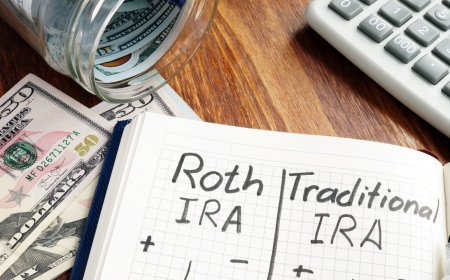Retirement Living: Top Real Estate Side Hustles for Retirees to Earn Extra Income

Real estate can be an excellent side hustle for retirees, offering both steady cash flow and the potential for long-term wealth building. According to Adam Hamilton, CEO of REI Hub, in a July 2025 Kiplinger interview, real estate is a prime opportunity for retirees seeking flexible income streams. The Federal Housing Finance Agency’s House Price Index confirms this, showing a 2.8% rise in U.S. home values from May 2024 to May 2025, highlighting the potential for property appreciation and rental income.
Retirees can choose real estate ventures that align with their lifestyle and energy levels. Options range from hands-on projects like flipping houses to passive investments like real estate investment trusts (REITs) or crowdfunding platforms, which eliminate the need to manage properties directly. You don’t even need to own a home to get started.
One of the simplest ways to earn extra income is renting out a spare room. AARP’s 2025 home-sharing guide notes that many retirees appreciate both the financial boost and the companionship from leasing unused space. Per IRS 2024 Publication 527, all rental income must be reported on your taxes, but expenses like repairs, insurance, and depreciation can often be deducted, reducing your tax burden.
Flipping, Long-Term Rentals, and Short-Term Stays
Flipping houses can yield significant profits but requires careful planning. ATTOM’s Q1 2025 Home Flipping Report indicates a median return of 25% before expenses, though real profits often range from 5% to 15% after accounting for repairs, loan interest, and taxes. Long-term rentals, such as a spare room or a small rental property, offer more predictable income with less day-to-day hassle. However, unless you hire a property management company, you’ll handle maintenance issues like late-night plumbing emergencies. Belong’s July 2025 survey reports that property managers typically charge 8% to 12% of monthly rent, averaging 8.49%, plus fees for tenant placement and lease renewals.
Short-term rentals, like those on Airbnb, can be highly lucrative, particularly in high-demand areas like beach towns, college communities, or near national parks. AirDNA’s 2025 data, via Uplisting, shows the average U.S. Airbnb host earned $44,235 annually, a significant increase from the $14,000 projected for part-time hosts in 2023. Retirees can rent out space flexibly, reserving time for personal use. However, costs like cleaning, local taxes, and Airbnb’s 3% host fee can eat into profits.
Real Estate Investment Trusts and Crowdfunding
For retirees seeking a hands-off approach, publicly traded real estate investment trusts (REITs) are an attractive option. REITs own income-generating properties like apartments, malls, or office buildings and are required to distribute at least 90% of their taxable income as dividends, providing reliable payouts. Over the 25 years ending December 31, 2024, the main REIT index delivered an average annual return of 9.89%, surpassing the S&P 500’s 7.7%, per Nareit.
Crowdfunding platforms like Fundrise make real estate investing accessible with a low entry point—starting at just $10. Fundrise spreads investments across diverse properties, offering a 7.9% annual dividend and an 8.3% total return in 2024, with quarterly payouts deposited directly to your account. The platform handles all property management, though it charges a 1.85% annual fee. Alternatively, the Vanguard Real Estate ETF (VNQ) offers a liquid, publicly traded option for investing in real estate. Dividends from VNQ are taxed as ordinary income unless held in a tax-advantaged retirement account.
What's Your Reaction?
 Like
0
Like
0
 Dislike
0
Dislike
0
 Love
0
Love
0
 Funny
0
Funny
0
 Angry
0
Angry
0
 Sad
0
Sad
0
 Wow
0
Wow
0









































